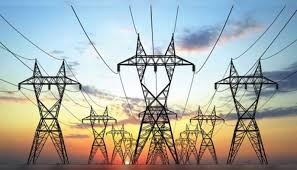


Senate urges FG to stop planned increase in electricity tariff via subsidy withdrawal
The Senate has urged the Federal Government to stop its planned increase of electricity tariff via the planned withdrawal of electricity subsidy.
The upper legislative chamber made the call through a motion it adopted at plenary on Wednesday in Abuja.
The motion was captioned, “Planned Increase in Electricity Tariff and Arbitrary Billing of Unmetered Customers by Distribution Companies (DisCos)” and brought under matters of urgent public importance, sponsored by Sen. Aminu Abbas (PDP Adamawa) and 10 co-sponsors.
Abbas said it was worrisome to hear of the plan to increase electricity tariff by the relevant statutory authority in spite of increased economic challenges with attendant widespread poverty and high cost of living in Nigeria.
He claimed that the Minister of Power was reported to have said that “The nation must begin to move towards a cost-effective tariff model, as the country was currently indebted with N1.3 trillion to Generating Companies (GenCos) and $1.3 billion owed to gas companies.”
According to Abass, the minister had said that more than N2 trillion was needed for subsidy, but only N450 billion was budgeted in 2024.
“The Senate may further note that the same electricity businesses are collecting money from customers for services not rendered.
“When they have not added anything to the equipment, they inherited it from Power Holding Company of Nigeria.
“Communities buy transformers to replace damaged ones in addition to over-burden bills and arbitrary estimates for unmetered customers.
“This is taking place in a country where the greater number of the population is living below the poverty level, with stagnant wages.
“Rising inflation and depreciating currency, the prospect of higher electricity bill is unattainable,” Abbas said.
He said that arbitrary energy charges on unmetered customers had become worrisome given Feb. 2024 report of the Nigerian Electricity Regulatory Commission (NERC) on non-compliance with energy billing caps by DisCos and penalty of N10.5 billion imposed on DisCos that over-billed its unmetered customers.
Abbas said in 2020 the President of Nigeria then, ordered NERC to commence mass pre-paid metering to end estimated billing, saying that funds were released to that effect.
He said it was worrisome that the multiple sanctions declared to be imposed by NERC against DisCos for failing to comply with eradication of estimated billing for unmetered customers which included credit adjustments to over-billed unmetered customers for the period Jan– Sept, 2023.
He said March 2024 billing cycle, publication of the list of credit adjustment beneficiaries in two national dailies, indicates a deduction of N10.5 billion from annual allowed revenues of the eleven DisCos during the next tariff review.
This, he said, seemed to have been in futility, given the continued violations by DISCOs.
He expressed reservation that in addition to the high cost of living being experienced in the country, the unmetered customers who are owners of small and medium enterprises were adversely impacted by the level of exorbitant electricity charges and by implication have their businesses affected.
The Senate in its further resolution mandated the Committee on Power to investigate the over N2 trillion subsidy requirements as stated by the Minister of Power to avoid the repeat of the fuel subsidy scenario.
It also mandated the committee to investigate the statement made by the minister with regards to the N1.3 trillion the ministry was said to owe the GenCos and N1.3 billion dollars owed to gas companies.
It also urged the committee to investigate the role of the Ministry of Power, NERC and Ziglaks Company on their roles in the failed agreement to provide prepaid meters and ensure Nigeria is not shortchanged.
It also urged the committee to engage the NERC to come up with a lasting solution to the energy billing system in the country and other related issues.
The senate urged the committee to find out the truth of the matter on issue of Federal Government directive and release of funds for mass pre-paid metering and report findings to it.
It also urged the committee to enforce and ensure the judicious utilisation of the N10.5 billion naira penalty imposed on DISCOs
It further called for investigation of the operations of DisCos to ascertain the current status of metering and their extent of compliance with relevant legal and regulatory frameworks in service delivery.
The Senate directed NERC to furnish the committee with any relevant documents on metering of electricity consumers, post privatisation requirements for operation of DisCos and evidence of regulatory actions taken to ensure statutory compliance by DisCos.
Senate also directed NERC to ensure implementation of energy caps by all DisCos to unmetered customers in the country;
It further directed its committee to submit a comprehensive report for further legislative action.



